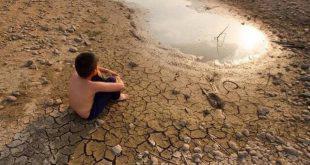Balochistan Human Rights Group:
On September 27, 2024, the Unrepresented Nations and Peoples Organization (UNPO) submitted a comprehensive report to the UN Special Rapporteurs highlighting the systemic issues affecting the Baloch minority in Iran. The report underscores the Iranian government’s persistent neglect and inaction, which continue to intensify the Baloch community’s challenges, from poverty and infrastructure deficits to environmental and health crises.
The submission sheds light on critical issues such as natural resource exploitation, widespread poverty, and inadequate infrastructure, all of which exacerbate health concerns and increase the region’s vulnerability to climate change. Poor water management practices, chronic water scarcity, and recurring droughts further compound these issues, reflecting a pattern of governmental oversight that stretches back to the Islamic Revolution of 1979. Over the years, Iran’s central authorities have imposed discriminatory policies that impact the Baloch and other ethnic minorities, adding further strain on a region already facing extreme poverty and a severe lack of development.
The report also highlights the environmental challenges in Balochistan, including insufficient disaster preparedness, mismanagement of water resources, and inadequate infrastructure to handle natural disasters like floods. Such factors increase the risk of outbreaks of infectious diseases, internal displacement, and the continued marginalisation of the indigenous Baloch population.
Violations of Rights
According to UNPO, these circumstances represent violations of multiple rights for the Baloch population, including limitations on religious freedom, language use, and exclusion from political and economic participation. The UNPO’s submission includes the following recommendations to the UN Special Rapporteurs:
- Disaster Management Resources:
- Allocate necessary funds and resources to the Disaster Management Center in Balochistan for an effective response to flash floods and heavy rainfall.
- Sustainable Water Management:
- Implement long-term water management solutions, including reservoir construction, rainwater harvesting, and restoration of natural water bodies, to address chronic drought and water scarcity.
- Flood-Resistant Infrastructure:
- Develop flood-resistant infrastructure, such as roads, bridges, and housing, to reduce the impacts of natural disasters.
- Preventive Disaster Measures: Establish early warning systems, community preparedness training, and emergency response plans to protect against future natural disasters.
- Water Policy Reform:
- Conduct a full review of water policies to ensure fair distribution and sustainable usage of water resources in Balochistan.
- Support Vulnerable Populations:
- Tailor national and local policies to address the needs of vulnerable groups, including those living in poverty, women, children, and long-discriminated minorities and indigenous peoples.
- End Discriminatory Practices:
- Implement measures to halt discrimination against the Baloch and other ethnic minorities, promoting equal rights and opportunities.
- Cultural Preservation:
- Support initiatives to preserve and promote Baloch culture, language, and heritage to foster community pride and identity.
- Inclusion in Policy-Making: Ensure the inclusion of Baloch representatives at all government levels to address their unique needs and concerns.
- Conclusion
The UNPO calls upon the United Nations Special Rapporteurs to consider these recommendations and recognize the urgent need to address both the environmental crises and the systematic discrimination faced by the Baloch and other ethnic minorities in Iran. The UNPO reaffirms its commitment to advocating for the rights of marginalized communities on the global stage and drawing attention to the ongoing human rights violations faced by the Baloch people.


